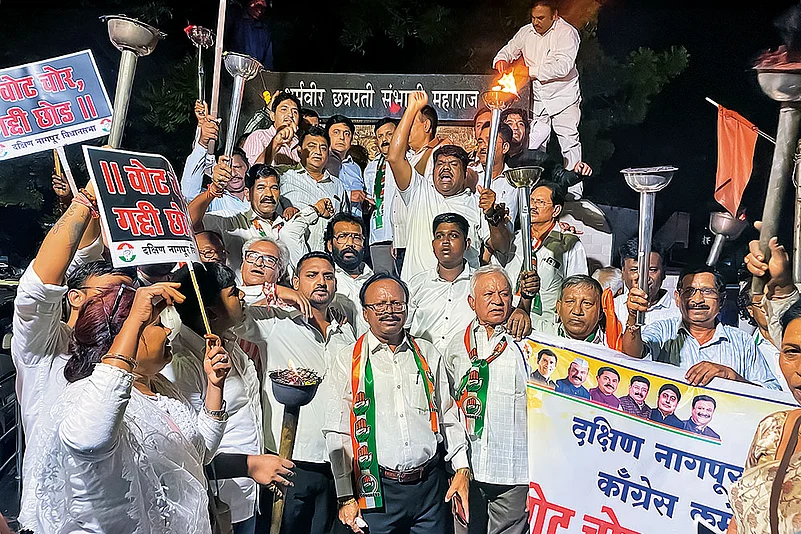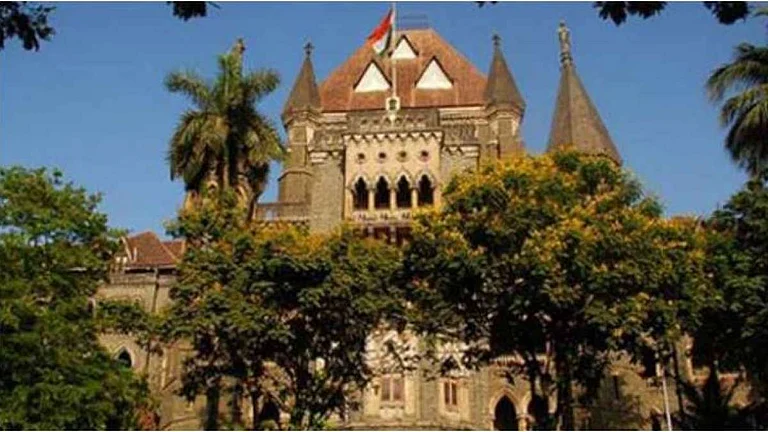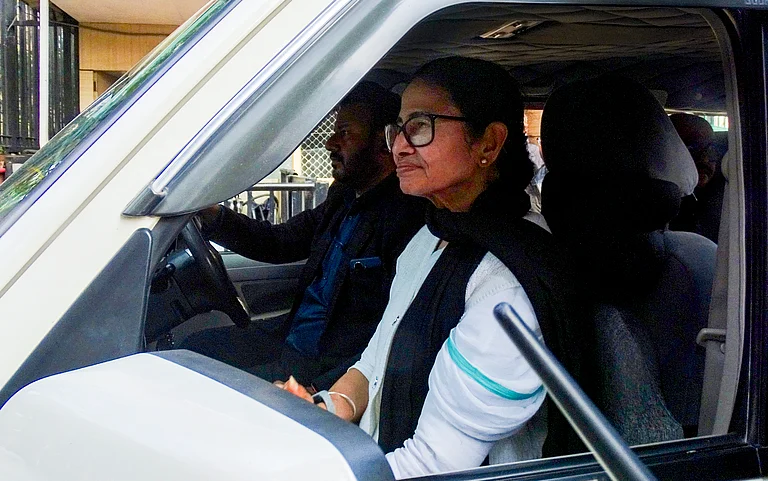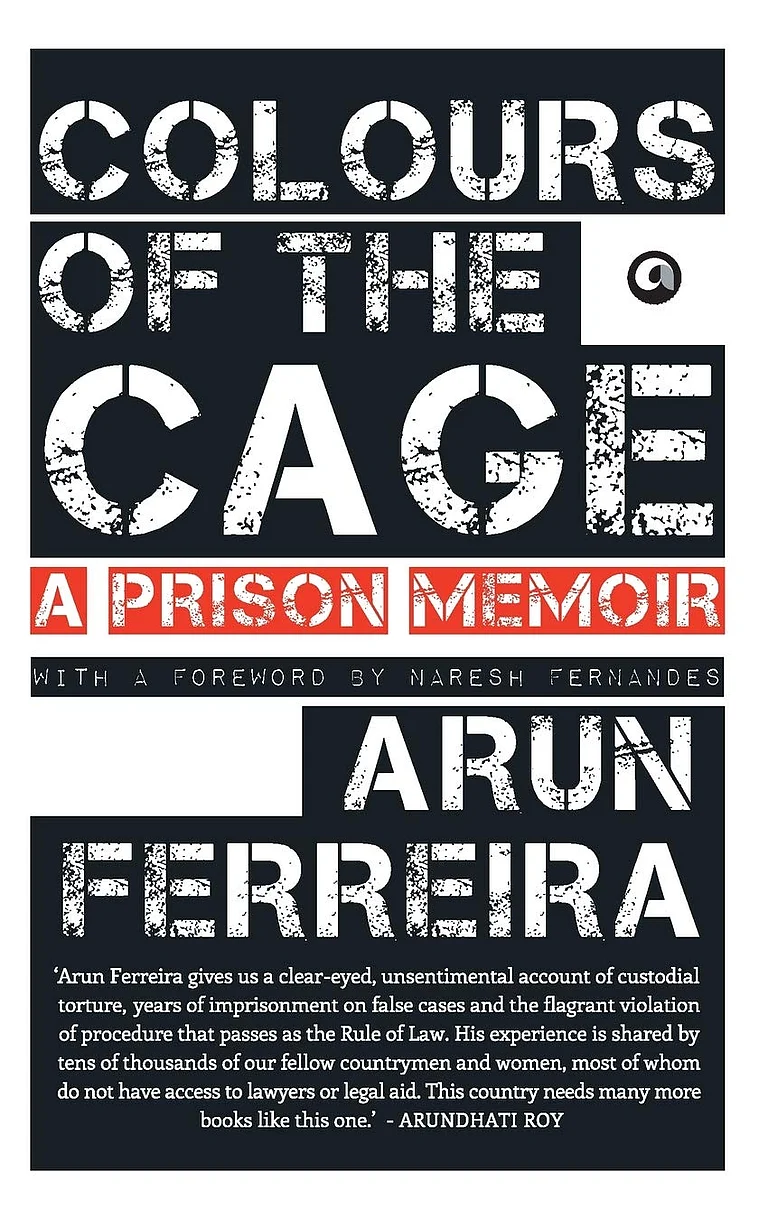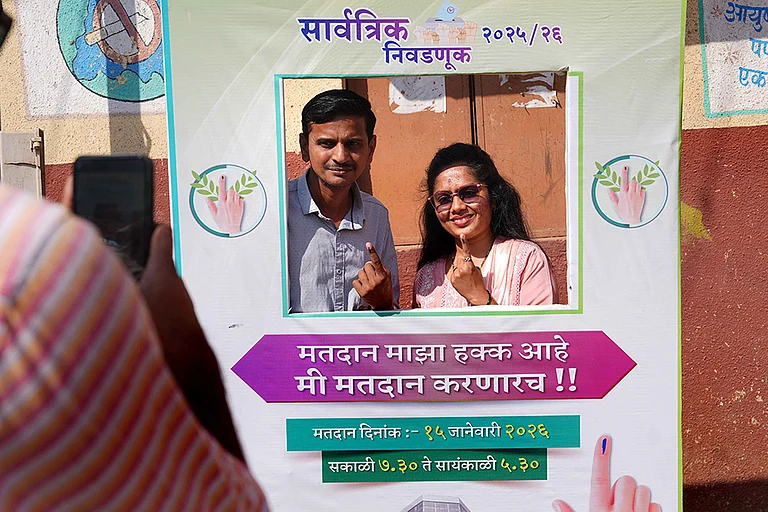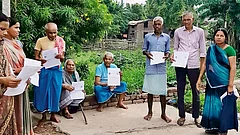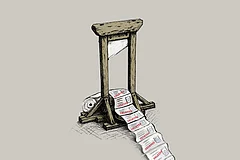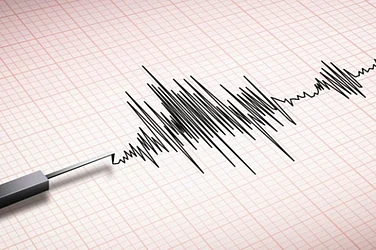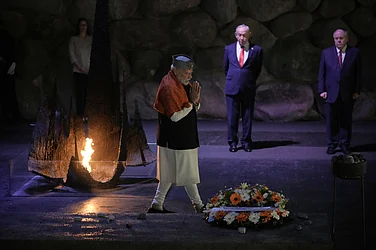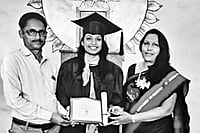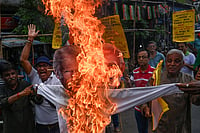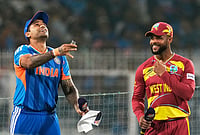
Through an RTI it was reveaed it that 33,712 names had been added to—and 3,411 deleted— from the electoral roll of the Nagpur South West constituency.
Even before the November polls, a team led by a former legislator and Peasants and Workers Party leader had flagged discrepancies in the electoral roll.
In December 2024, the Union government amended the Conduct of Election Rules and limited the public inspection of election documents, including CCTV footage of polling booths.
With allegations of “vote theft” sparking a nationwide debate since Rahul Gandhi’s August 7 press conference, citizens and civil society groups have been questioning alleged irregularities in electoral rolls and the Election Commission of India’s (ECI) response. While Congress workers in Maharashtra have been raising public awareness on the matter with district-level protests and digital campaigns, the ruling coalition has tried to label their efforts as an electoral ploy of the INDIA bloc with an eye on the upcoming Assembly election in Bihar.
However, many losing candidates had reported discrepancies and filed election petitions well before Rahul’s sensational presser—during the Maharashtra polls last November. They wrote letters to the ECI, filed queries under the Right to Information (RTI) Act and even filed election petitions as a last legal resort.
On May 16, in a reply by the Electoral Registration Officer (ERO) for Nagpur South West to an RTI query filed by Nagpur-based Congress leader Prafulla Gudadhe, who had lost to Chief Minister Devendra Fadnavis and challenged his election in court on January 4, it was revealed that 33,712 names had been added to—and 3,411 deleted— from the electoral roll of the Nagpur South West constituency that elected Devendra Fadnavis in just six months between the Lok Sabha election in April-May 2024 and the November polls in Maharashtra.
In July, the Nagpur bench of the High Court of Bombay dismissed Gudadhe’s election petition on the “technical ground”, as his lawyer Akash Moon puts it, that the “petitioner was not present in the court while filing the petition”. Earlier, on January 1, alleging election rigging in the Nagpur South West constituency, Gudadhe had demanded the entire video and CCTV footage of polling, and complete details of Form-17C, a booth-by-polling-booth comprehensive voting record, from the ECI under rule 93 of the Conduct of Election Rules, 1961.
In his RTI query of May 1, besides asking how many new voters (under Form-6) were added after the 2024 Lok Sabha election and before the Assembly election, and how many voters were deleted under Form-7 during the same period, Gudadhe also demanded access to reports by the booth level officers (BLOs) about all the newly registered and deleted voters. In its response, the ERO refused to share the BLOs’ reports, saying, “All the applications for voter additions and deletion in the roll were submitted by the BLOs online through (the Garuda) app and therefore the offline reports of these entries are not available with this office and…can’t be provided.” It didn’t say why the information could not be provided from the app’s digitised database.
Gudhahe believes the number of additions and deletions to the electoral roll of the Nagpur South West constituency is “unprecedented”, and therefore requires investigation by the ECI. “My petition before the high court was not dismissed on its merit, while the ECI has not responded to my rightful demands,” says Gudhade. His appeal in the Supreme Court has been posted for hearing on August 28.
Questioning the “technical ground” of the petition’s dismissal, Gudhahe’s lawyer Moon, who also represents several other defeated INDIA bloc candidates who have filed election petitions with the Nagpur bench under the Representation of the People Act, 1951, says all the petitioners had “signed the oath in the presence of the court registrar”. “All the petitions were filed in compliance with the legal framework. The court should look at their merit and decide election petitions within six months,” says advocate Moon. At least 21 such petitions from the Vidarbha region alone have been filed with the Nagpur bench.
Among the petitioners is Jayshree Shelke, who lost the Buldhana assembly seat with a narrow margin of 841 votes. Confident she should have won, Shelke waits for the Nagpur bench to decide on her election petition challenging the victory of Shiv Sena (Shinde faction) MLA Sanjay Gaikwad. She has also been waiting for the CCTV footage of polling, besides Form-17C details, that she demanded from the ECI.
In a writ filed with her petition, Shelke has demanded recounting of votes in the Buldhana constituency and claims to have submitted evidence of alleged fraud concerning 4,000 votes—cases of “duplication”, according to her lawyer Moon. “Around 60 names on the roll belonged to the dead,” Moon adds.
Similar petitions by INDIA bloc candidates Girish Pandav from Nagpur South, Satish Wajurkar from Chimur and Santosh Singh Rawat from Ballarpur are among those set aside by the high court citing procedural lapses. “Most of the others are waiting to be heard,” says Moon, who believes election petitions—although they consume time and resources—are a legal remedy political leaders should use, besides raising public awareness about free and fair elections. “All my clients are first runners-up who secured significant votes and sought complete information through proper applications, but the ECI has not responded till date. Is this how the commission ensures free and fair elections?” asks Moon.
Even before the November polls, discrepancies in the electoral roll had been found by a team led by former member of the legislative council and leader of the Peasants and Workers Party of India Balaram Patil, who contested from Panvel. In September 2024, Patil wrote to the ECI about discrepancies concerning 11,000 voters and demanded deletion of duplicate registrations. The ECI’s regional officers sent him a response a month later, giving rule-based justifications of the discrepancies, but Patil had already filed a petition in the HC, demanding deletion of duplicate voters.
In their verdict on October 7, Justices A.S. Gadkari and Kamal Khatta ordered the ECI and the state election commission to decide on the representations made by Patil within two weeks from receipt of the order and without seeking any extension. The ERO summoned Patil for a hearing on October 17 and said, “No suo motu deletions shall be done in an election year. Deletion can be done only by Form 7 or on the basis of request of the concerned elector in the declaration part of Form 8.” Citing the Handbook of Returning Officers, 2023, the ERO also referred to Chandrakant Nimba Patil vs State Election Commission and others filed at the Aurangabad bench of the Bombay HC to support its decision of not deleting alleged discrepancies. “I put up my case before the polls in front of the ECI as well as the high court,” says Patil. “When the ECI decided to not delete the duplicate voter registrations, I didn’t think of challenging it in the Supreme Court because that would take years and a lot of financial resources.”
Following Rahul’s August 7 press conference, INDIA bloc candidates who lost the Assembly election started sharing their stories. In an interview, former minister Yashomati Thakur alleged fraud concerning around 30,000 voters in her constituency, Teosa, in Yavatmal. Many Congress activists in Maharashtra believe Rahul’s press conference unmasked the ECI. They say the ‘Voter Adhikar Yatra’ in Bihar and Rahul’s continued campaign are gaining momentum and leading to district-level campaigns for public awareness.
“The common people have now started questioning the ECI’s role,” says Bhausaheb Ajabe, general secretary, Maharashtra Pradesh Congress Committee. “The courts should hear election petitions in a fast-track manner and pronounce time-bound verdicts. But, more than the judiciary, it is the ECI’s duty as a statutory body to serve the public as an autonomous authority instead of favouring the BJP. The number of petitions is a comment on its functioning.”
In December 2024, the Union government amended the Conduct of Election Rules and limited the public inspection of election documents, including CCTV footage of polling booths. This came exactly a year after the Chief Election Commissioner and Other Election Commissioners (Appointment, Conditions of Office and Terms of Office) Act was enacted, empowering a committee comprising the prime minister, a Union cabinet minister and the leader of the Opposition to nominate the chief election commissioner (CEC). This drew much flak because, by removing the Chief Justice of India from the committee, the legislation allows the ruling party a two-third majority in deciding who helms the machinery that conducts elections across the country.
MORE FROM THIS ISSUE
Priyanka Tupe is Assistant Editor, Outlook. She is based in Mumbai.
Democracy is about ballots, but also about memory—who safeguards both, and who seeks to rewrite them? Outlook’s September 11, 2025 issue, 'Election Omission' probes these erasures—of voters, voices, and histories—asking what they mean for India’s democratic future. This article appeared in print as 'Staking Claim To The First Spot'







